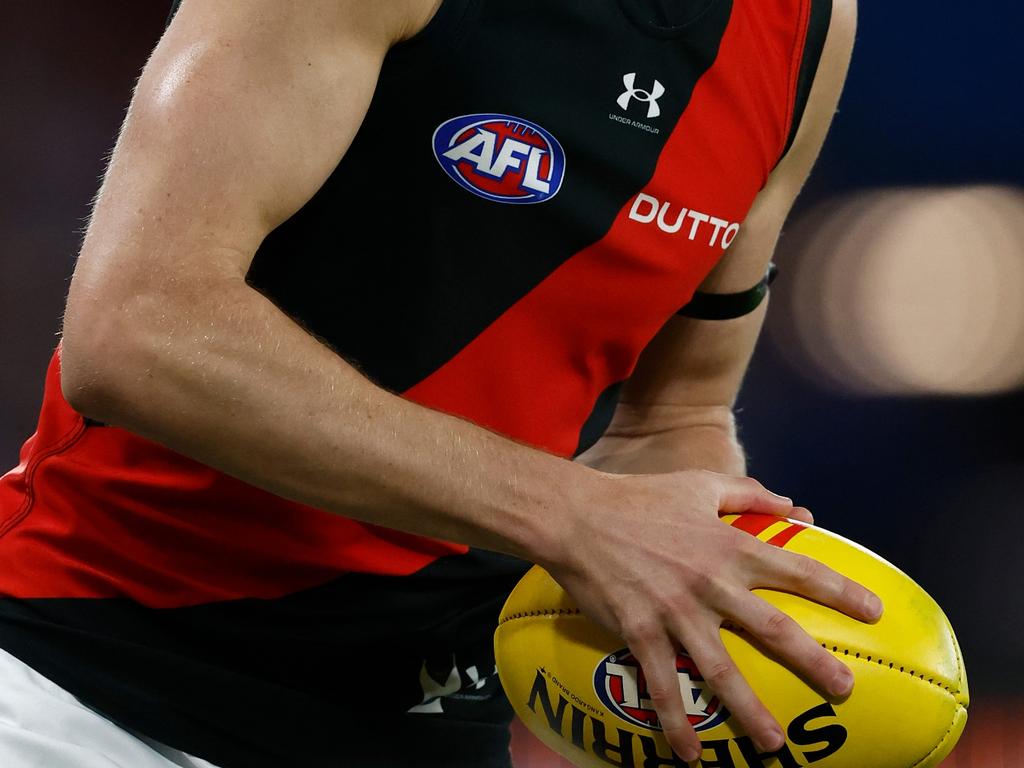Allan Hird: Why were Chinese swimmers treated differently to Bombers?
The news Chinese swimmers were allowed to compete at Tokyo Olympics despite positive tests paints a picture worlds apart from WADA’s treatment of Essendon players in 2013.
AFL
Don't miss out on the headlines from AFL. Followed categories will be added to My News.
Are Chinese swimmers valued more highly than Essendon footballers? Interesting question.
The answer would be yes.
Certainly, they are by their respective government agencies for drugs in sport and sporting bodies. And certainly, they are by the World Anti-Doping Agency.
The Chinese equivalent of Sports Integrity Australia, CHINADA, has taken a different position compared with ASADA’s (SIA’s predecessor) back in 2013 when it relentlessly pursued the Essendon players.
First a few facts.
The 23 Chinese each returned positive results to a banned substance when tested by CHINADA.
The 34 Australians were tested numerous times by ASADA and always returned negative results.
The different approaches become stark once we look at what happened.
CHINADA argued the swimmers were “inadvertently exposed to the substance through contamination”.
Nothing to see here right? WADA said fair enough, we’ll let the swimmers compete at the Tokyo Olympics. No problems, even though the WADA website says this in its guide – athletes are ultimately responsible for any banned substance found in their system, regardless as to how it got there or if there was an intention to cheat.
This is the principle of strict liability, which is not so strict after all (so long as you don’t play for Essendon, that is).

ASADA argued that even though the Essendon players kept returning negative results, they were guilty because Stephen Dank had worked at Essendon.
Based on a joint investigation done with the AFL, ASADA charged the players at an independent tribunal comprising two retired judges and a barrister. The tribunal cleared the players, stating ASADA’s case “lacked an evidentiary basis”. End of story? No, ASADA chief executive Ben McDevitt, eager to prove himself, gave WADA $US100,000 to prosecute the players.
WADA gladly accepted the cash and retried the players at the Court of Arbitration for Sport. The minutes of the WADA Foundation Board Meeting of May 13, 2015 at page 30 explain why: “The initial decision had been questioning the ability to pursue non-analytical cases, and the level of proof required to win the cases and, at a time when the new Code was entering into force and putting a lot of emphasis on non-analytical cases, it was important to set the right precedent”.
So, in WADA’s own words, the Essendon players were low-hanging fruit that WADA used to set a precedent in order to ping helpless athletes in the future.

But as we see from the Chinese example, WADA is not interested in pursuing athletes from countries that will fight their corner.
Finally, let’s look at CAS, the body that convicted the 34 Essendon players after two Australian judges and a barrister found the case against them “lacked an evidentiary basis”.
CAS and WADA are creations of the International Olympics Committee. The governance of each is linked. For example, in 2019, John Coates was president of the International Council of Arbitration for Sport (the body that runs CAS) and the president of WADA was Sir Craig Reedie. Mr Coates represented Australia on the IOC, and Sir Craig represented the UK on the IOC.
Unlike democratic countries, where the separation of powers underpins the law, the IOC ‘jurisprudence’ unites the powers of the prosecutor and the judiciary by appointing its own directors to run its prosecution and judicial agencies.
WADA’s treatment of the Chinese swimmers has exposed its double standards.
Surely, SIA and our Minister for Sport, Annika Wells, would have a view?
But their respective websites are silent.
— Allan Hird is James Hird’s father
More Coverage
Originally published as Allan Hird: Why were Chinese swimmers treated differently to Bombers?








